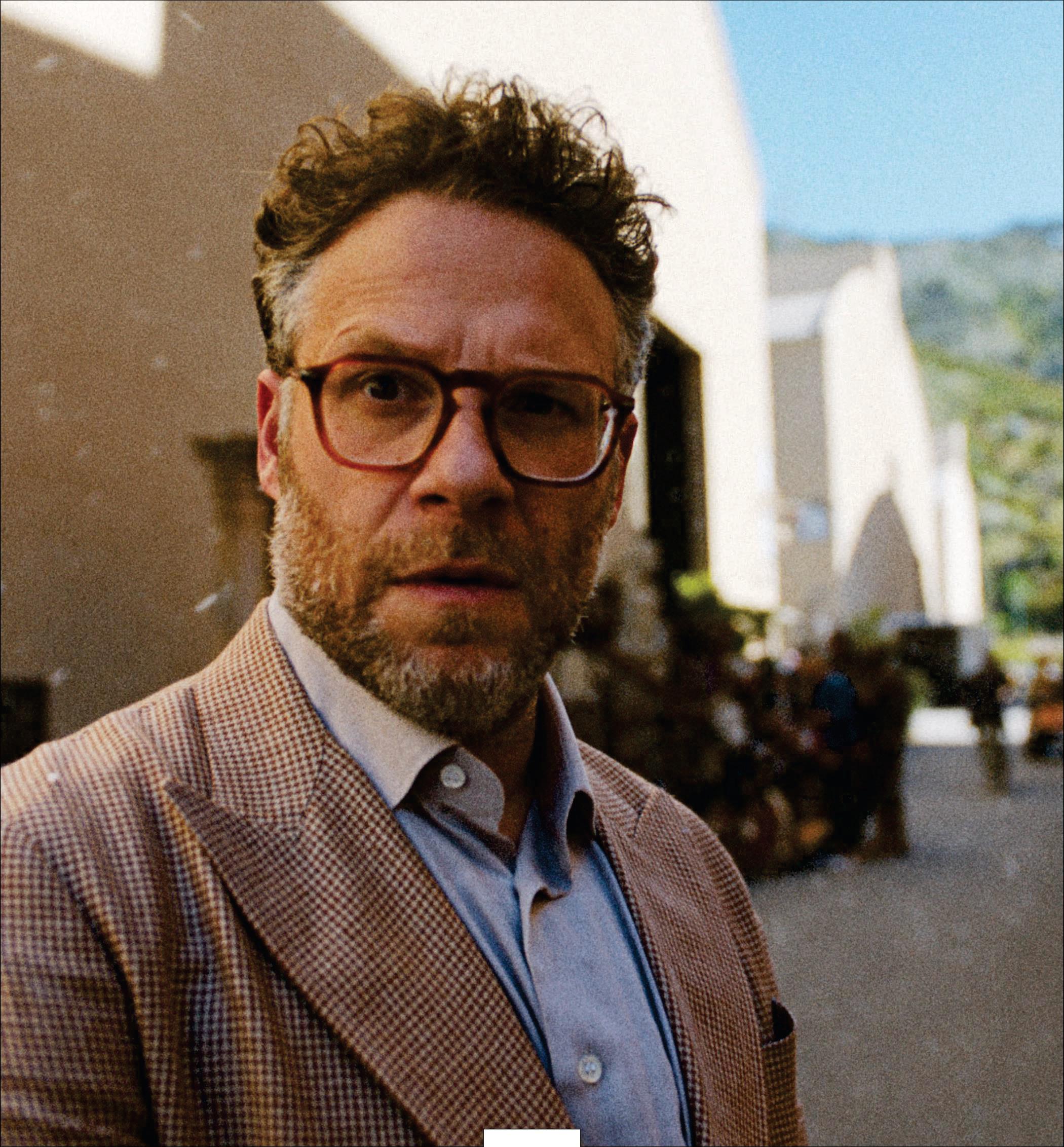Ten minutes into the Apple TV+ comedy, just about everything we need to know about the new head of Continental is apparent. Movies are Matt’s world. As we soon discover, he has no significant other, no family, no real social life. His knowledge of cinema, from action franchises and Oscar winners to obscure indies and the international art house, rivals that of any film geek. And, for the most part, he has good intentions; when he gets his promotion, he keeps a promise to make his assistant (Chase Sui Wonders’ Quinn) a creative exec. Yet he’s so desperate to succeed in an industry that is now, itself, desperate to succeed in the face of technological upheaval, labor unrest, audience fragmentation, and a post-pandemic slump in theater attendance, that he is in effect no better than any other spineless suit. Which is precisely how the filmmakers and actors Matt reveres see him. Worse still, he’s insecure enough that this constant rejection sends him into a spiral of self-loathing buffoonery that gives The Studio, created by Rogen, Evan Goldberg, Peter Huyck, Alex Gregory, and Frida Perez, the rhythms of a Curb Your Enthusiasm, Studio Head Edition.
The Studio is a timely, funny, and exuberantly—though not uncritically—cinephilic panorama of a business caught in the latest battle of a war between art and commerce that has raged since studios like Warner Bros. were still run by their namesakes. It’s also 2025’s best new show to date, and one of Hollywood’s sharpest self-portraits in ages—which is saying something, considering how much the entertainment industry loves to celebrate and satirize itself.
AUTEURS DABBLING IN TELEVISION love to frame their shows as six- or 10- or 13-hour films, as though there’s something inherently superior about the cinematic form. But, as proudly as The Studio wears its love for movies—specifically the good, old-fashioned, non-IP-based ones—it is also unapologetic about being built for TV. Delightfully episodic, it throws Matt, his underlings, and the famous people who are always guest-starring, often as themselves, into a new debacle in each half-hour. There’s a kinetic L.A. noir riff, in which the studio head, donning a trench coat and fedora, takes it upon himself to investigate the disappearance of a reel of the Chinatown rip-off Olivia Wilde is directing. Another episode, set at a work gala for the pediatric oncologist (Rebecca Hall) Matt is dating, finds him struggling to convince her physician colleagues that the scatological Johnny Knoxville zombie movie he’s working on is just as important as their lifesaving profession and features a particularly Curb-esque escalation of his insecure antics.
Matt makes a great antihero in part because he’s the perfect foil for everyone around him. His creative compromises can be devastating to the ambitious Quinn, who has yet to become fully jaded. His sleazy work buddy Sal (Ike Barinholtz) couldn’t care less about art but is, to Matt’s eternal consternation, beloved by the talent because he’s fun and chill. The cynical, trend-chasing marketing executive Maya (Kathryn Hahn, playing refreshingly against type) makes Matt look principled by contrast. Some combination of his guilt and his craving for the approval of a maternal figure drives him to offer a lucrative producing deal to his embittered predecessor and mentor, Patty (Catherine O’Hara, hilarious as ever but not onscreen as much as you’d hope the second-billed cast member would be). Matt may be a selfish, cowardly fool, but his sincere love of film makes it impossible to root against him—especially when the alternative is letting Sal or Maya fill Continental’s slate with a whole Powdered Drink Mix Cinematic Universe. Indeed, the barrel-scraping Kool-Aid project—which Matt stupidly tries to reshape into a self-aware, Barbie-style masterpiece by buying a Martin Scorsese script about Jonestown’s Kool-Aid-drinking suicide cult—is not the only thing the studio has in development. Rogen and his co-creators round out the season with an Indiewood period drama, directed by Sarah Polley and starring Greta Lee, that Matt can’t stop himself from messing with during an unwanted set visit that puts the entire crew on edge. The executives laugh, cry, and rejoice as they screen a crime drama written and directed by Ron Howard, only to nod off during an incongruous, mind-numbing coda that brings the run time to nearly three hours. The problem is, Howard has final cut, and no one at Continental has the guts to confront him about his terrible ending.
For all its madcap humor, one serious question The Studio raises—a question relevant not just to Hollywood, but also to media, publishing, the music industry, and other creative fields—is: Can the time-honored “one for them, one for me” approach, often associated with Scorsese and Steven Soderbergh, which uses popcorn fare to fund artistically fulfilling projects, still work amid the economic pressures of the 2020s? Or must the Matt Remicks of the world keep...


